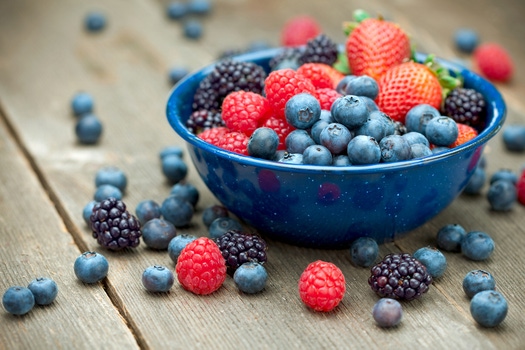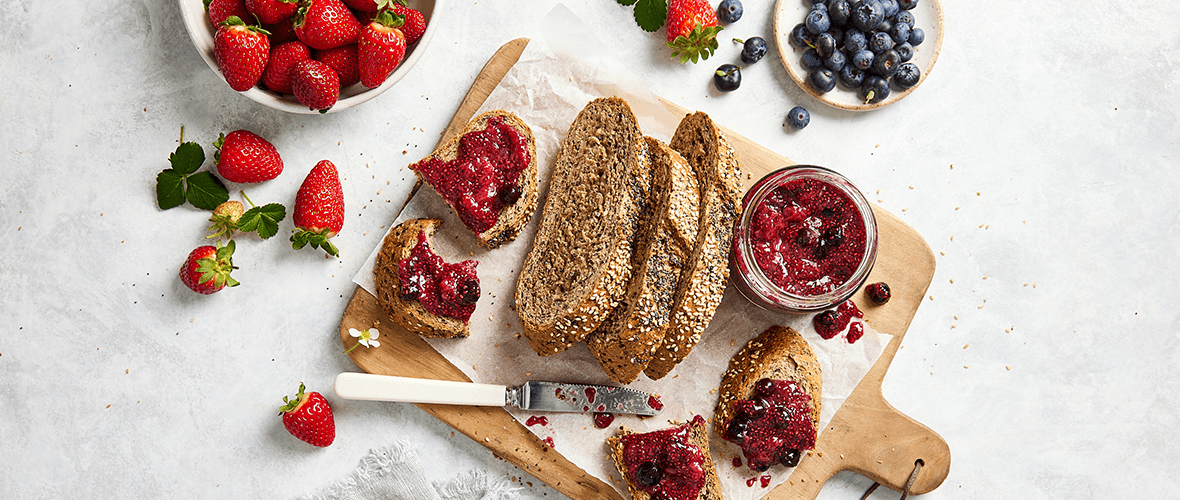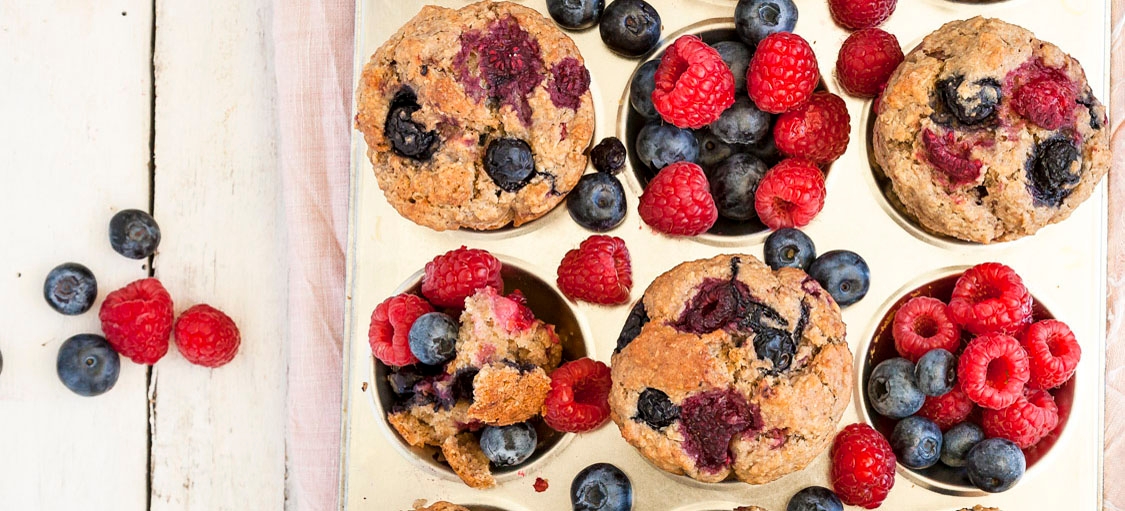1. FOODIQ. Berries and Human Health: A summary of the Science. 2022 (unpublished).

Why you should eat more berries
Berries are often referred to as ‘nature’s lollies’ for their sweetness, size, snackability and striking colour. But that’s where the similarity to lollies ends. Berries are one of the top dietary sources of vitamins, minerals and disease-fighting nutrients and may help reduce the risk of many age-related conditions. In fact, a recent review1 of over 185 studies on the benefits of berries found a daily addition to your diet could provide a long list of health benefits from brain function to gut health, weight management, longevity and diabetes prevention.
They’re as good added to breakfast as they are for dessert and have been an important part of our diet for thousands of years thanks to their energy content and sweet, juicy flavour. From blueberries to strawberries, raspberries to blackberries, there’s plenty of evidence for eating a berry healthy handful every day.
What makes berries so good?
Berries are jam-packed full of health-promoting nutrients. The top three berry health benefits include:
Micronutrients – more commonly known as vitamins and minerals, these are dietary elements that your body needs to function which berries have in spades. They are vital to healthy development, disease prevention and wellbeing. Berries typically contain vitamins C and E, folate, magnesium and manganese (but vary in levels across each berry type)
Polyphenols – these are the main type of bioactives (a compound which has a health promoting effect in your body) in plant foods and are abundant in berries. They give berries their vibrant colours, flavours and aromas as well as act like prebiotics in the gut.
Fibre – the indigestible parts of plant foods that contribute to a healthy digestive system and gut. Berries contain insoluble and soluble fibre that promotes good gut health and helps feed the ‘good’ gut bacteria. These gut bacteria produce compounds that can have positive impacts on other parts of the body, including the brain
So which berry is best and how much should I eat?
All berries are good for you, so you can confidently load up your morning brekkie with a handful of whichever berry is most affordable and in season. But remember, frozen berries are also a great alternative when your favourite berries aren’t in season. Rather than sticking to one type of berry, try eating a variety as they each offer unique health benefits. You’ll also reap the added benefits of greater nutritional diversity by mixing it up, as well as keeping your tastebuds happy.
If you can, aim for a serve of berries (around 1 cup, or 150g) as the health benefits found across the majority of studies is most commonly seen from eating around 125 – 500g of berries each day.
Need some berry nice inspiration?
Try these simple and delicious berry focused recipes to help you get more of these bite-sized fruits into your diet.
Banana berry smoothie: Try this smoothie for an easy and deliciously refreshing way to get your berries in on the run.
Strawberry & Blueberry Chia Jam: Try this small batch, low in added sugar jam recipe when berries are in season and affordable. It can be spread on wholegrain toast, used in baked treats, or dolloped on your morning Weet-Bix.
Berry brekkie scrolls: Try these quick and easy brekkie scrolls for an easy grab and go brekkie that can also cover you for afternoon tea, dessert and lunch boxes. They are practically bursting with berry goodness.
Baked Berry-Bix Cups: Try these berry cups for a baked twist on Weet-Bix porridge that the whole family will love. Use mixed berries, or whatever berries are in season for the same delicious effect.
Berry muffins: Try these muffins when you are in need of a plate for a morning tea for guaranteed happy customers. Because who can resist warm homemade muffins bursting with blueberries and raspberries?

The latest nutrition advice, plus health and wellness tips delivered to your inbox monthly



